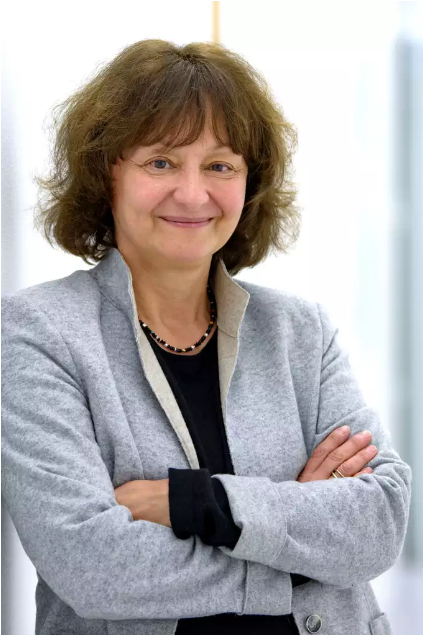The director at the Max Planck Institute (MPI) for Biophysical Chemistry in Göttingen was honored by the German Chemical Society (GDCh) for her research in the field of biochemistry. She received the prize in a ceremony on October 21, 2021.
Proteins are involved in virtually all processes in living cells. However, they can only fulfill their tasks if they are produced without errors. Ribosomes, the ‘protein factories’ of living cells, play a central role in this extremely complex process. They read the proteins’ building instructions, which are encoded in our genetic material. Then, precisely following the instructions, they link together amino acids to form long chains. The amino acid chain must then fold into its correct three-dimensional structure. Only then the protein becomes functional.
“There is still a large gap in our knowledge of how a newly produced protein achieves its working conformation,” says Rodnina. With her team, over the past decades she has developed groundbreaking methods to study ribosomes and was able to reveal key principles of protein production. If something goes wrong in this process, the consequences can be fatal. Errors in protein folding are the cause of many diseases, including Alzheimer’s, Parkinson’s and other neurodegenerative disorders.
The scientist and her team have not only provided crucial insights into how ribosomes work and how they ensure that proteins are produced in the right place at the right time. “Now, we also understand much better how malfunction in the protein factory is avoided and which processes at the ribosome provide quality control.”
About the award winner
Marina Rodnina studied biology at the University of Kiev (Ukraine) and received her PhD from the Institute of Molecular Biology and Genetics of the Ukrainian Academy of Science in 1989. With a scholarship from the Alexander von Humboldt Foundation, she moved to the University of Witten/Herdecke in 1990, where she worked as a research assistant from 1992 to 1997. After her habilitation in 1997, she was appointed university professor and held the chair of Physical Biochemistry from 2000 to 2009. In 2008, she moved to the MPI for Biophysical Chemistry in Göttingen as director, where she has since headed the Department of Physical Biochemistry. She is a member of the European Molecular Biology Organization (EMBO), the National Academy of Sciences Leopoldina and the Academia Europaea. Rodnina’s awards include the Gottfried Wilhelm Leibniz Prize in 2016, an ERC Advanced Grant from the European Research Council in 2018, and the Otto Warburg Medal of the Society for Biochemistry and Molecular Biology in 2019.
About the Albrecht Kossel Prize
Since 2014, the GDCh has awarded the prize to scientists who have made outstanding achievements in the field of biochemistry. The prize, which is endowed with 7,500 euros, is named after Ludwig Karl Martin Leonhard Albrecht Kossel (1853 - 1927). The German biochemist and physiologist received the Nobel Prize for Physiology or Medicine in 1910 for his research on proteins and in particular nucleic acids.
Contact
Dr. Katja Rudolph
Press and Public Relations
+49 551 201-1319
katja.rudolph@...


